Theory: John Walker's Captain America Will Lead To The Dark Avengers
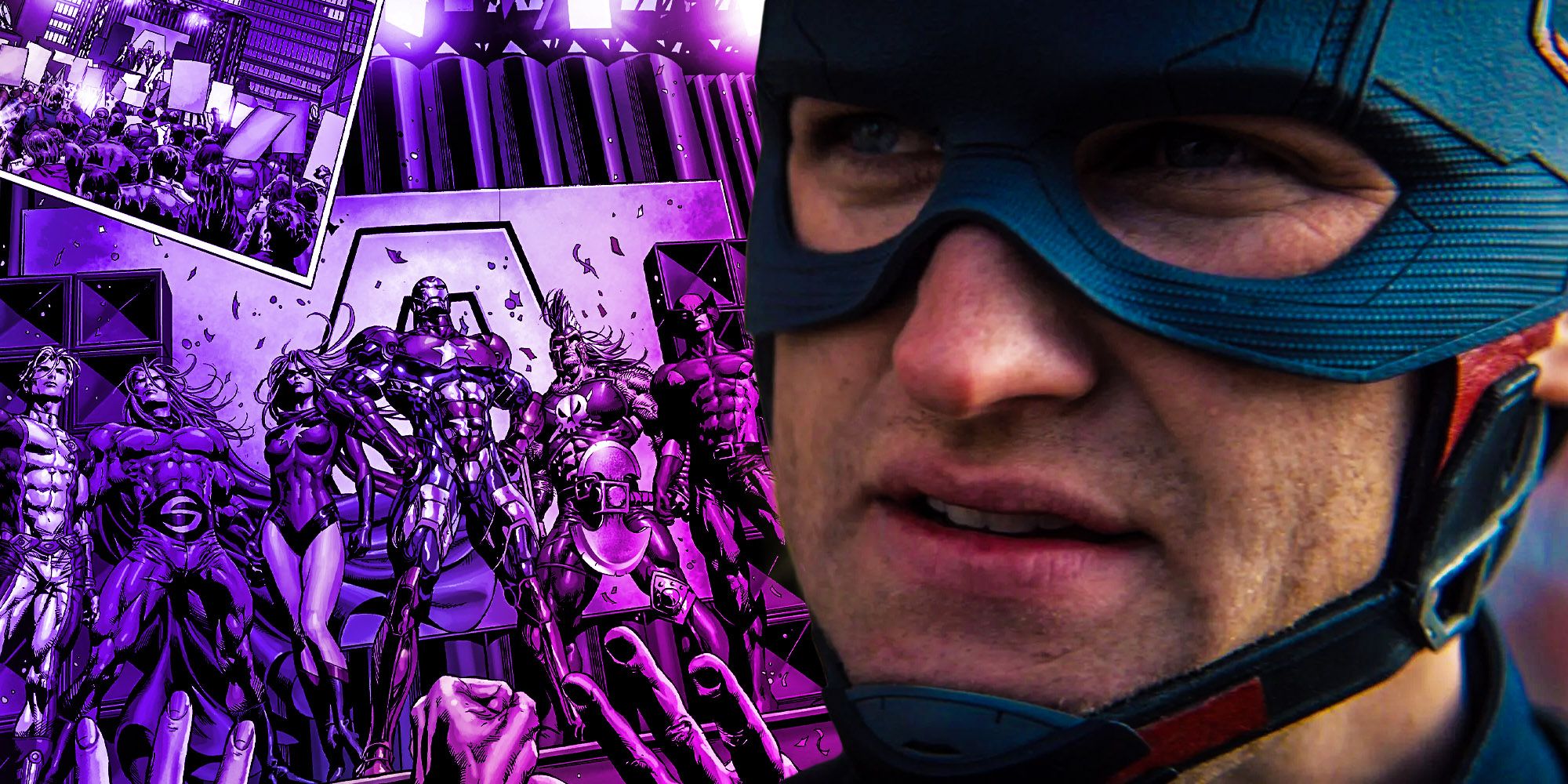
New Captain America John Walker (Wyatt Russell) is one of the most tragic characters in The Falcon and the Winter Soldier, and his failings might actually make him the perfect candidate to become a member of the Dark Avengers. Since his debut in the first episode of the show, Walker has been a major topic of conversation surrounding the series, teetering on the line between a well-meaning man struggling to live up to his predecessor and a traumatized soldier with an unhealthy itch for conflict. The biggest asset to Walker's characterization has been Russell's performance, which is so good that the actor has unfortunately received his share of hate over John Walker due to just how despicable his character becomes.
John isn't the only character in the show grappling with the weight of Captain America's legacy, however. At the end of Avengers: Endgame, Sam Wilson (Anthony Mackie) is given Cap's shield by Steve Rogers personally, yet abandons it at the start of Falcon and the Winter Soldier in rejection of the symbol that it represents. However, in the second episode, Bucky (Sebastian Stan) introduces Sam to Isaiah Bradley (Carl Lumbly), a Black veteran who was given an experimental recreation of the Super-Soldier serum and actually fought against the Winter Soldier during the Korean War. This experience is one that implies that the legacy of Captain America is far bigger than either Sam or John Walker, and maybe even bigger than Steve Rogers himself realized.
The original Captain America, despite his flaws, was someone willing to reject the easy way out in order to do what was morally right, something that Walker was unable to do when it came to the temptations of the Super-Soldier Serum. However, Walker's inner darkness and weak moral fiber might make him the perfect candidate for something else entirely.
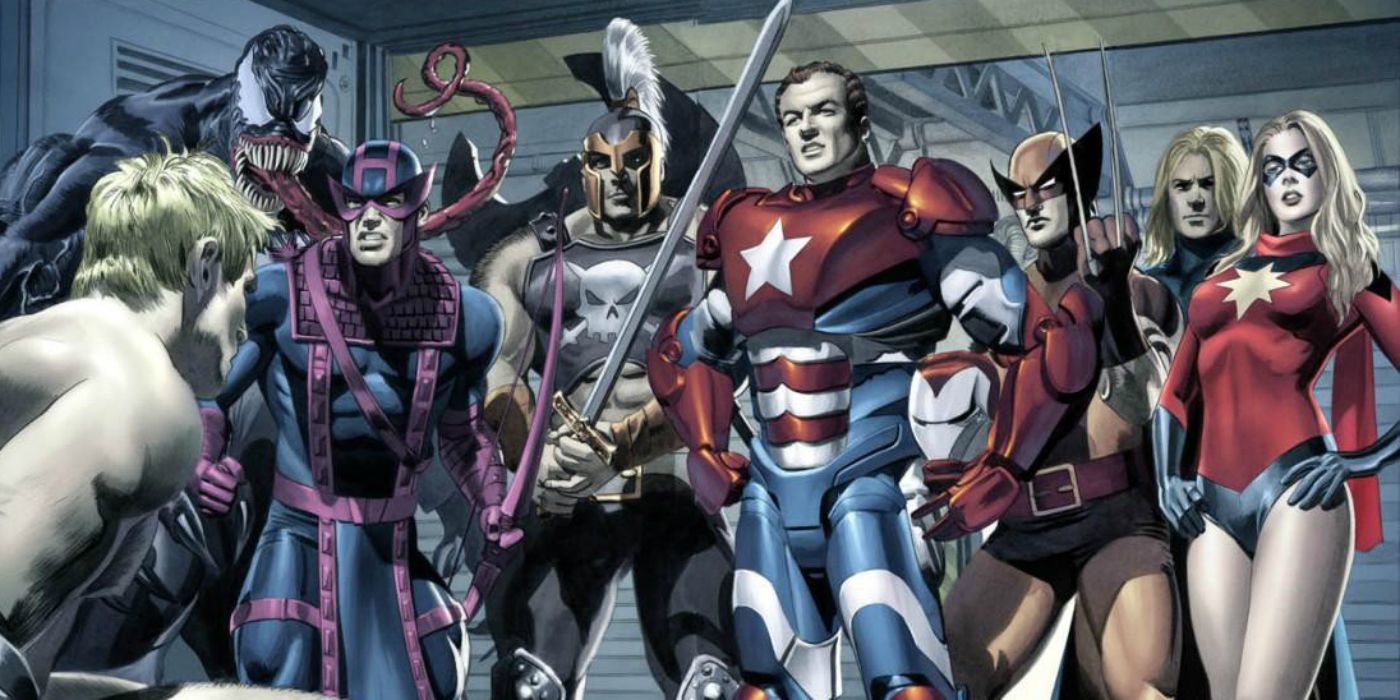
In the aftermath of the Marvel Comics event "Secret Invasion," Norman Osborn became a beloved figure in the public eye due to his hand in helping stave off the Skrull Invasion. Because of this, he was appointed the head of S.H.I.E.L.D. for a short time, using his newfound power to rename the organization H.A.M.M.E.R. and form his own active Avengers organization. However, unbeknownst to the world at large, Osborn's team is actually made up of villains posing as recognizable heroes, allowing for them to hide their more nefarious machinations.
With characters such as Bullseye masquerading as Hawkeye and Wolverine's unhinged son Daken impersonating his father, the Dark Avengers certainly make for a terrifying threat. But due to their own selfish interests and inner turmoil (and in the case of the Sentry, his murderous alter-ego The Void), they're incapable of working together without the guidance of Norman Osborn operating towards a singular goal. They're a grouping of people much better suited to be used as an efficient weapon rather than a peacekeeping force, which doesn't bode well within the context of the MCU.
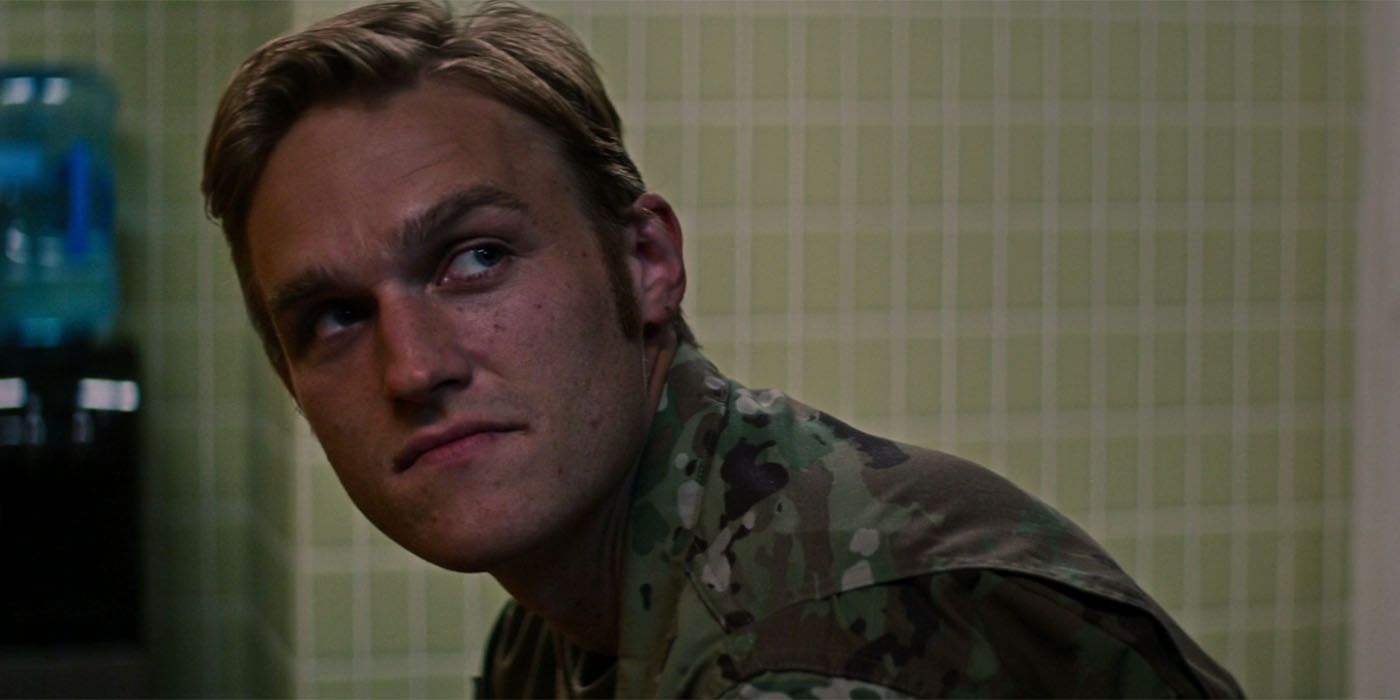
When Steve Rogers was first introduced to the world as Captain America, he was presented as a garish caricature of American exceptionalism; a prop used to boost wartime morale. What truly earned him his distinction as a hero was his moral fiber as someone whose convictions would cause him to take a stand in favor of what he believed was right, even if the rest of the world saw it as wrong. His stubborn refusal to compromise was one of his biggest flaws but also one of his greatest strengths, and it directly inspired both Bucky and Sam in their respective journeys as heroes.
John Walker, however, failed to define his convictions in the same way. Long before he was thrust into the mantle, he was being molded into an extension of the United States Government, doing precisely what was asked of him. Even though it earned him decoration, he was never his own man in the way that Steve was – he never made it past the caricature of an idea. His commendations as a soldier and his reception of the shield were never anything more than the same American exceptionalism used on Steve, hiding John's true purpose as a state-sanctioned tool. John Walker's susceptible nature makes him someone perfect to be used on a team like the Dark Avengers.
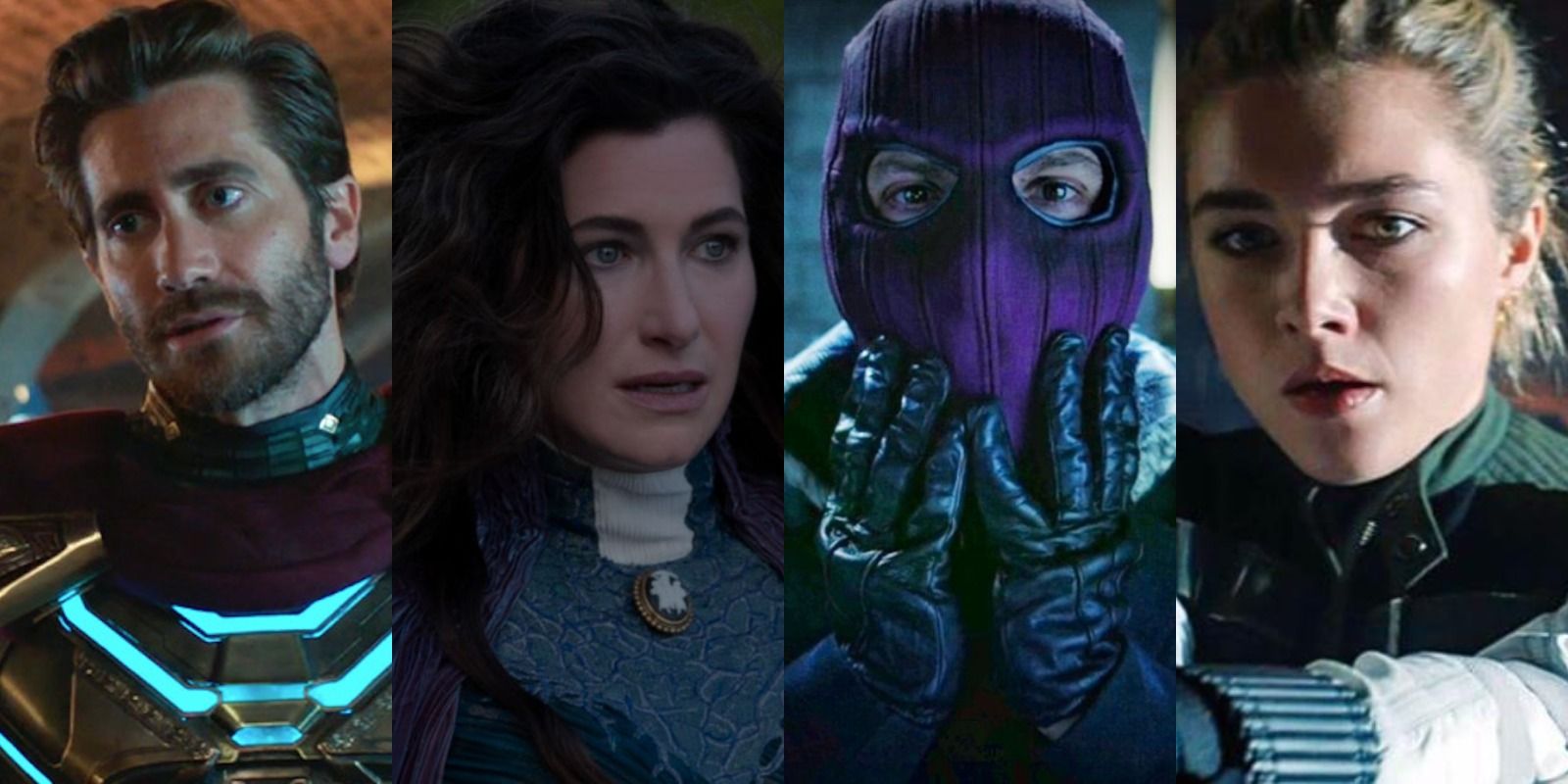
Of course, John Walker's Captain America (or U.S. Agent) can't be the only member of the team. Luckily enough, it seems as if Phase 3 and 4 of the MCU have already been subtly introducing characters who could make up an altered version of the roster while keeping the same general idea. Spider-Man: Far From Home introduces a version of Mysterio (Jake Gyllenhaal) who masquerades as a hero, and despite being defeated by Spider-Man and seemingly killed at the end of the film, Quentin Beck still maintains his positive public image. If he truly did fake his death and is brought back somehow, he would make sense as a character who could be used to fool the public into thinking that the team is actually altruistic.
Black Widow also seems to be introducing a character who could realistically be on the team in the form of Florence Pugh's Yelena Belova. While there's nothing in the film's marketing that outright suggests Yelena Belova might be a villain, the character has had a past as one in the comics, and her similar skillset and background to Natasha Romanoff (Scarlett Johansson) would allow her to serve as the team's Black Widow. Her involvement would make sense, given that the cameo in the most recent episode of The Falcon and the Winter Soldier was originally meant to debut in Black Widow.
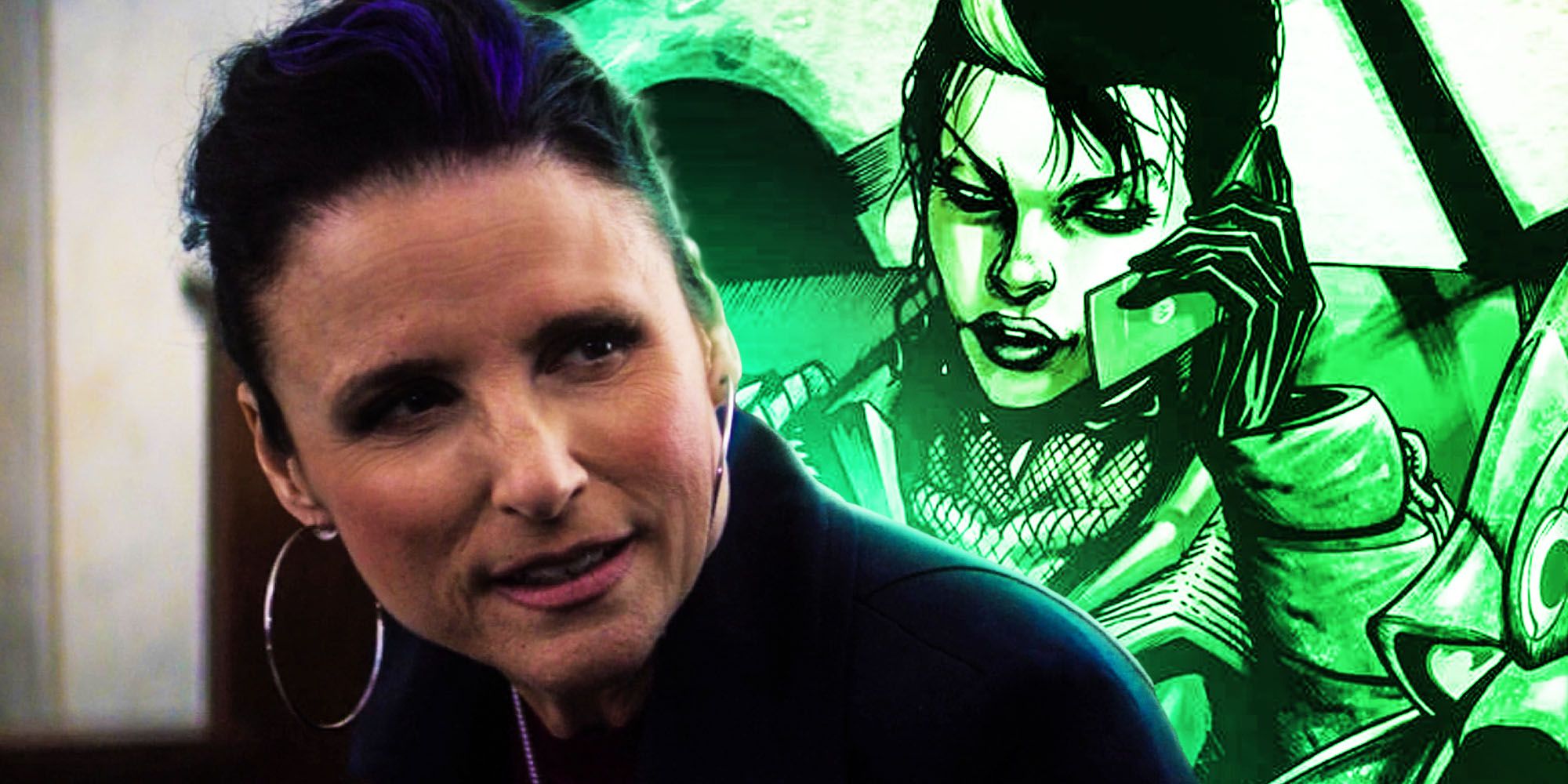
Episode 5 of The Falcon and the Winter Soldier introduces a brand new character from the comics to the MCU, and one that carries significant history of her own. The episode premiered Julia Louis-Dreyfus as Contessa Valentina Allegra de la Fontaine, a former S.H.I.E.L.D. agent in the comics who was eventually revealed to be a mole for Hydra as well as the second character to become Madame Hydra. Shortly after John Walker is given an other-than-honorable discharge for his murder of the Flag-Smasher Nico, Fontaine approaches him and affirms that he did the right thing in both killing Nico and taking the Super-Soldier serum. She also gives him a blank card by which to contact her, heavily implying that she might need his abilities at some point in the future.
While Norman Osborn was the architect of the Dark Avengers in the comics, Contessa de la Fontaine is someone of both nobility and political power, a character who could very well have the resources to fund a team like the Dark Avengers. On top of that, Hydra has already infiltrated government institutions like S.H.I.E.L.D. and the political sector, which means she's capable of gaining public favor for her version of the team. If the MCU is getting ready to introduce the Dark Avengers, The Falcon and the Winter Soldier may have just given them the perfect vehicle by which to do it.
from ScreenRant - Feed
